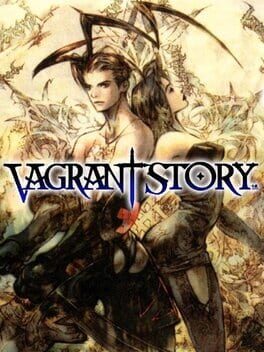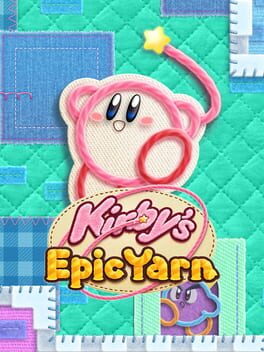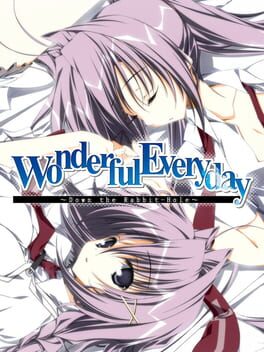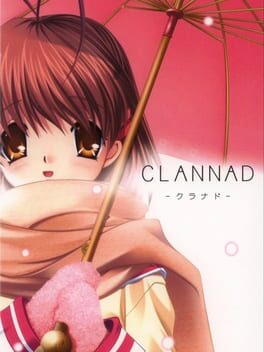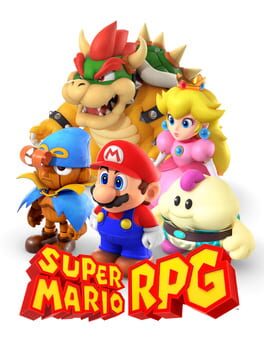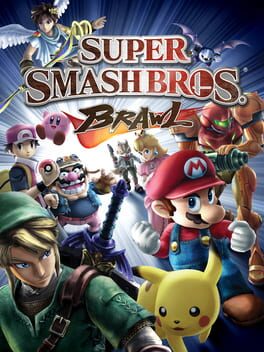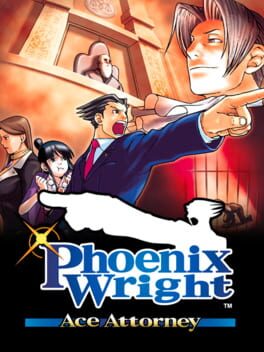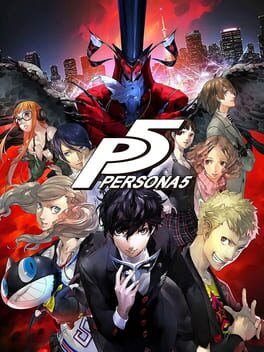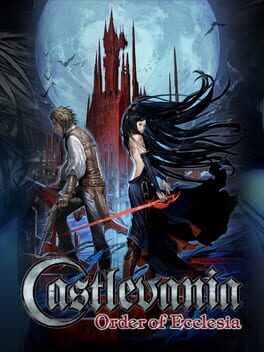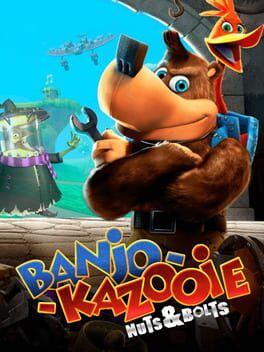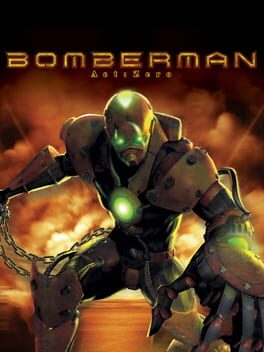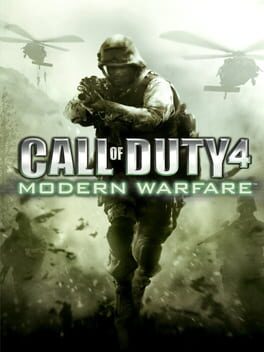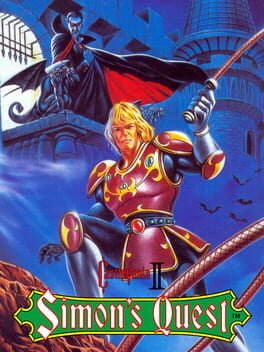79 reviews liked by Dogninja
Persona 3 Reload
2024
--Memento Mori--
When I was young, I became aware of death pretty quickly. Growing up in various poor parts of Los Angeles, I was exposed to a lot of the harshest aspects of life. Many people I knew fell in with the wrong crowds—were at the wrong place at the wrong time—weren’t given a chance to live. Up until I was about 19, nearly all of my dreams at night were about my own end. Death was all around me. But being aware of death and understanding it are two very different things. Persona 3 acknowledges this and does its best to teach you the difference.
“The Arcana is the means by which all is revealed… The moment man devoured the fruit of knowledge, he sealed his fate... Entrusting his future to the cards, he clings to a dim hope. Attaining one's dream requires a stern will and unfailing determination."
Originally released back in 2006, Persona 3 was the game to create and cement the modern Persona formula made more popular by Persona 4 and exploding into the mainstream with overnight acclaim in Persona 5. As an architect of its own genre, Persona 3 lacked many elements that later fans would come to love and expect from the series. Far from as alienating as the three games preceding it, Persona 3 still found itself in this space of “outdated” design by many people. While I strongly disagree with that mentality, it is ultimately what lead to Persona 3 Reload—released only a month prior to this review.
"The Arcana is the means by which all is revealed... The silent voice within one's heart whispers the most profound wisdom."
My journey into the realm of Persona, and by extension, the greater Megami Tensei franchise is a bit odd. Rather than starting with one of the more popular RPG titles, I was exposed to what would later become my favorite series through Persona 4 Arena—a 2D fighting game spin-off of Persona 3’s successor. After struggling to find a character I truly resonated with, I researched the series a bit and found Persona 3. I was immediately enticed by its protagonist’s design, the blue color scheme, and most notably—Thanatos.
"The Arcana is the means by which all is revealed... Celebrate life's grandeur...It's brilliance...It's magnificence..."
I immediately found a way to… acquire the game and played it start to finish in a matter of days. I was hooked. The core gameplay, the music, the presentation was all right up my alley. But more than that, its theme and its characters resonated with me immensely. Persona 3 came to me at the perfect time. In 2012, I was in my final year of high school about to enter the real world at 17 with no sense of direction and no vision of the future. Completely aimless—lost, even.
"The Arcana is the means by which all is revealed... Only courage in the face of doubt can lead one to the answer..."
Each of P Studios’ titles follow a theme based on a major arcana tarot card starting with Persona 3: Arcana XIII—Death. While each title under their belt carries their themes with conviction, Persona 3’s commitment to death stands out even amongst its brethren. Everyone will and must confront mortality in their life. Death will befall our friends, our family, our pets, and ourselves. There is no exception. Persona 3 highlights this with each core character (and most of its side cast) having experienced a major death in their life, leading them onto the path they currently walk. As a necessary hard stop in our lives, death changes us in different ways. Some lash out in anger, others may retreat into themselves, and some may sever all ties as a means to prevent that familiar pain from returning. But eventually, you will have to face it, one way or another.
"The Arcana is the means by which all is revealed... It is indeed a precious gift to understand the forces that guide oneself..."
I was an apathetic teenager. I had no sense of self-worth, and I often found myself drifting off into daydreams about the end and how it would come. What the world would be like afterward. What would change. I wasn’t suicidal—far from it, really. I was simply carrying on each day without direction or meaning. I had friends, and I was relatively popular with most people… but I felt empty. People came and went from my life, and it was just something to be expected. Nothing to be mourned or understood—it simply was.
"The Arcana is the means by which all is revealed... There is both joy and wonder in coming to understand the hearts of others..."
This all changed when I met the love of my life. As cliché as it may sound, she breathed life into me. And not in some quirky, fantasy woman way. Over time, on my own accord, I found myself wanting to do things. Wanting to be with people. Wanting to create memories and cherish them. Treating people with kindness over dismissive nonchalance. Opening up to people, and creating meaningful bonds. Understanding death means understanding life, and while I met her a few months prior… this was also 2012.
"The Arcana is the means by which all is revealed... One of the greatest blessings attained from the gift of life is the freedom to pursue one's personal goals..."
What is there new to say about the Persona formula known the world over through Persona 5? Not much, I imagine, so I’ll keep it brief. As Makoto Yuki, you return to Tatsumi Port Island ten years after a world-changing incident that brought about the Dark Hour—a hidden 25th hour in each day unbeknownst to those without Potential—the ability to manifest your inner psyche as a weapon known as Persona. Together with your comrades, you battle Shadows—amalgamations of the darkness within people given form—in an attempt to return the world to a state of normalcy. The game follows a hybrid formula of dungeon-crawling with turn-based JRPG battles and life simulation visual novel-type character moments. The two aspects support one another brilliantly and flow together in a cocktail of satisfying gameplay and memorable writing.
"The Arcana is the means by which all is revealed... To find the one true path, one must seek guidance amidst uncertainty..."
So, what’s different in Reload? Besides the visual updates, many quality of life changes have been made for modern audiences to get into and not get so filtered. Tartarus by nature will continue to do that to some degree, but the pain newcomers will feel has been heavily subdued. Battles are lightning quick now and every minor aspect has a neat little flourish to it not present in the original. The game’s balancing has had tweaks to make boss fights less of a pushover as well.
"The Arcana is the means by which all is revealed... It requires great courage to look within oneself, and forge one's own path..."
While that’s all well and good, the real meat of Reload for me are the story additions and full voice acting for all Social Links. In the original Persona 3, Makoto could not spend time with male party members outside of combat. They did not have Social Links in any form, and as such, did not get fleshed out to the same degree as the female cast members. This has been rectified with the addition of new Link Episodes—optional events with each character that provide just as much if not more memorable scenes for these characters than Social Links ever have. Without exaggeration, these are my favorite moments of Persona 3 Reload outside of its main story.
"The Arcana is the means by which all is revealed... Ever-present alongside time is fortune, cruel and unflinching."
In addition to the party member Link Episodes are new scenes involving Strega that make them feel more like people inhabiting the same world and less like laughable obstacles to trounce with a single auto-attack. Ryoji Mochizuki—a prominent character in the late game—also receives this treatment and the game shines brilliantly when these moments arise.
"The Arcana is the means by which all is revealed... One needs strength to endure, and rise above suffering and torment."
The voice acting in Reload is superb nearly all around. While I have some issues with Yukari’s new voice actress, she’s far from detrimental. The rest of the cast really crush it the whole way through with extra shout outs to Zeno Robinson as Junpei Iori and Alejandro Saab as Akihiko Sanada. The former was perfect in every moment, happy and sad, and the latter proved me wrong after my first impressions. That said, the music is unfortunately a mixed bag. Many of the remixes fall short compared to the original (“Burn My Dread -Final Battle-“) but all of the original tracks made for this title are incredible. Special mentions to “Color Your Night” and “It’s Going Down” for two of my new favorites in the series.
"The Arcana is the means by which all is revealed... In the face of unavoidable disaster lies the opportunity to search for redemption."
Persona 3 Reload is by no means a perfect game. Hell, if you asked me, it doesn’t need to exist in the first place. But even through all my doubts, I am glad it does. While at the time of writing this review, it does not have The Answer in any capacity, there have been rumors and leaks aplenty pointing to that inevitability. Even without that, however, I feel confident in saying that Reload is the best way to experience The Journey, and I highly recommend it to anyone that enjoys this series, JRPGs, or memorable storytelling.
"The moment man devoured the fruit of knowledge, he sealed his fate... Entrusting his future to the cards, man clings to a dim hope. Yet, the Arcana is the means by which all is revealed... Beyond the journey you have taken lies the absolute end. It matters not who you are... One thing is always certain: Death awaits all."
FINAL FANTASY VII is my childhood game—the one that shaped who I would become through my adolescence. Similarly, Persona 3 was the game that began my adulthood. It was a game that came to me at just the right time and showed me why life is important and why we should get out there and live it. Persona 3 Reload is a fantastic, faithful remake that I now cherish alongside the original. Playing Reload was like revisiting an old friend that you’ve longed to see again after all these years. As soon as I picked it up, and even know after clearing it 100% through two playthroughs, I still feel sad to let it go. This game—whether it’s the original release, FES, or Reload—will forever have a place with me.
"No one can escape time; it delivers us all to the same end. You can't plug your ears and cover your eyes."
When I was young, I became aware of death pretty quickly. Growing up in various poor parts of Los Angeles, I was exposed to a lot of the harshest aspects of life. Many people I knew fell in with the wrong crowds—were at the wrong place at the wrong time—weren’t given a chance to live. Up until I was about 19, nearly all of my dreams at night were about my own end. Death was all around me. But being aware of death and understanding it are two very different things. Persona 3 acknowledges this and does its best to teach you the difference.
“The Arcana is the means by which all is revealed… The moment man devoured the fruit of knowledge, he sealed his fate... Entrusting his future to the cards, he clings to a dim hope. Attaining one's dream requires a stern will and unfailing determination."
Originally released back in 2006, Persona 3 was the game to create and cement the modern Persona formula made more popular by Persona 4 and exploding into the mainstream with overnight acclaim in Persona 5. As an architect of its own genre, Persona 3 lacked many elements that later fans would come to love and expect from the series. Far from as alienating as the three games preceding it, Persona 3 still found itself in this space of “outdated” design by many people. While I strongly disagree with that mentality, it is ultimately what lead to Persona 3 Reload—released only a month prior to this review.
"The Arcana is the means by which all is revealed... The silent voice within one's heart whispers the most profound wisdom."
My journey into the realm of Persona, and by extension, the greater Megami Tensei franchise is a bit odd. Rather than starting with one of the more popular RPG titles, I was exposed to what would later become my favorite series through Persona 4 Arena—a 2D fighting game spin-off of Persona 3’s successor. After struggling to find a character I truly resonated with, I researched the series a bit and found Persona 3. I was immediately enticed by its protagonist’s design, the blue color scheme, and most notably—Thanatos.
"The Arcana is the means by which all is revealed... Celebrate life's grandeur...It's brilliance...It's magnificence..."
I immediately found a way to… acquire the game and played it start to finish in a matter of days. I was hooked. The core gameplay, the music, the presentation was all right up my alley. But more than that, its theme and its characters resonated with me immensely. Persona 3 came to me at the perfect time. In 2012, I was in my final year of high school about to enter the real world at 17 with no sense of direction and no vision of the future. Completely aimless—lost, even.
"The Arcana is the means by which all is revealed... Only courage in the face of doubt can lead one to the answer..."
Each of P Studios’ titles follow a theme based on a major arcana tarot card starting with Persona 3: Arcana XIII—Death. While each title under their belt carries their themes with conviction, Persona 3’s commitment to death stands out even amongst its brethren. Everyone will and must confront mortality in their life. Death will befall our friends, our family, our pets, and ourselves. There is no exception. Persona 3 highlights this with each core character (and most of its side cast) having experienced a major death in their life, leading them onto the path they currently walk. As a necessary hard stop in our lives, death changes us in different ways. Some lash out in anger, others may retreat into themselves, and some may sever all ties as a means to prevent that familiar pain from returning. But eventually, you will have to face it, one way or another.
"The Arcana is the means by which all is revealed... It is indeed a precious gift to understand the forces that guide oneself..."
I was an apathetic teenager. I had no sense of self-worth, and I often found myself drifting off into daydreams about the end and how it would come. What the world would be like afterward. What would change. I wasn’t suicidal—far from it, really. I was simply carrying on each day without direction or meaning. I had friends, and I was relatively popular with most people… but I felt empty. People came and went from my life, and it was just something to be expected. Nothing to be mourned or understood—it simply was.
"The Arcana is the means by which all is revealed... There is both joy and wonder in coming to understand the hearts of others..."
This all changed when I met the love of my life. As cliché as it may sound, she breathed life into me. And not in some quirky, fantasy woman way. Over time, on my own accord, I found myself wanting to do things. Wanting to be with people. Wanting to create memories and cherish them. Treating people with kindness over dismissive nonchalance. Opening up to people, and creating meaningful bonds. Understanding death means understanding life, and while I met her a few months prior… this was also 2012.
"The Arcana is the means by which all is revealed... One of the greatest blessings attained from the gift of life is the freedom to pursue one's personal goals..."
What is there new to say about the Persona formula known the world over through Persona 5? Not much, I imagine, so I’ll keep it brief. As Makoto Yuki, you return to Tatsumi Port Island ten years after a world-changing incident that brought about the Dark Hour—a hidden 25th hour in each day unbeknownst to those without Potential—the ability to manifest your inner psyche as a weapon known as Persona. Together with your comrades, you battle Shadows—amalgamations of the darkness within people given form—in an attempt to return the world to a state of normalcy. The game follows a hybrid formula of dungeon-crawling with turn-based JRPG battles and life simulation visual novel-type character moments. The two aspects support one another brilliantly and flow together in a cocktail of satisfying gameplay and memorable writing.
"The Arcana is the means by which all is revealed... To find the one true path, one must seek guidance amidst uncertainty..."
So, what’s different in Reload? Besides the visual updates, many quality of life changes have been made for modern audiences to get into and not get so filtered. Tartarus by nature will continue to do that to some degree, but the pain newcomers will feel has been heavily subdued. Battles are lightning quick now and every minor aspect has a neat little flourish to it not present in the original. The game’s balancing has had tweaks to make boss fights less of a pushover as well.
"The Arcana is the means by which all is revealed... It requires great courage to look within oneself, and forge one's own path..."
While that’s all well and good, the real meat of Reload for me are the story additions and full voice acting for all Social Links. In the original Persona 3, Makoto could not spend time with male party members outside of combat. They did not have Social Links in any form, and as such, did not get fleshed out to the same degree as the female cast members. This has been rectified with the addition of new Link Episodes—optional events with each character that provide just as much if not more memorable scenes for these characters than Social Links ever have. Without exaggeration, these are my favorite moments of Persona 3 Reload outside of its main story.
"The Arcana is the means by which all is revealed... Ever-present alongside time is fortune, cruel and unflinching."
In addition to the party member Link Episodes are new scenes involving Strega that make them feel more like people inhabiting the same world and less like laughable obstacles to trounce with a single auto-attack. Ryoji Mochizuki—a prominent character in the late game—also receives this treatment and the game shines brilliantly when these moments arise.
"The Arcana is the means by which all is revealed... One needs strength to endure, and rise above suffering and torment."
The voice acting in Reload is superb nearly all around. While I have some issues with Yukari’s new voice actress, she’s far from detrimental. The rest of the cast really crush it the whole way through with extra shout outs to Zeno Robinson as Junpei Iori and Alejandro Saab as Akihiko Sanada. The former was perfect in every moment, happy and sad, and the latter proved me wrong after my first impressions. That said, the music is unfortunately a mixed bag. Many of the remixes fall short compared to the original (“Burn My Dread -Final Battle-“) but all of the original tracks made for this title are incredible. Special mentions to “Color Your Night” and “It’s Going Down” for two of my new favorites in the series.
"The Arcana is the means by which all is revealed... In the face of unavoidable disaster lies the opportunity to search for redemption."
Persona 3 Reload is by no means a perfect game. Hell, if you asked me, it doesn’t need to exist in the first place. But even through all my doubts, I am glad it does. While at the time of writing this review, it does not have The Answer in any capacity, there have been rumors and leaks aplenty pointing to that inevitability. Even without that, however, I feel confident in saying that Reload is the best way to experience The Journey, and I highly recommend it to anyone that enjoys this series, JRPGs, or memorable storytelling.
"The moment man devoured the fruit of knowledge, he sealed his fate... Entrusting his future to the cards, man clings to a dim hope. Yet, the Arcana is the means by which all is revealed... Beyond the journey you have taken lies the absolute end. It matters not who you are... One thing is always certain: Death awaits all."
FINAL FANTASY VII is my childhood game—the one that shaped who I would become through my adolescence. Similarly, Persona 3 was the game that began my adulthood. It was a game that came to me at just the right time and showed me why life is important and why we should get out there and live it. Persona 3 Reload is a fantastic, faithful remake that I now cherish alongside the original. Playing Reload was like revisiting an old friend that you’ve longed to see again after all these years. As soon as I picked it up, and even know after clearing it 100% through two playthroughs, I still feel sad to let it go. This game—whether it’s the original release, FES, or Reload—will forever have a place with me.
"No one can escape time; it delivers us all to the same end. You can't plug your ears and cover your eyes."
are you using your time to properly think and talk with art? are you listening? or do you plug your ears anytime it tries to talk with you, to challenge you and make you rethink what you're engaging with?
i don't think i have any common ground with most people who like videogames, actually. but i don't think this is just videogames anymore, this is endemic in all of the arts. people stopped being listeners, started being consumers. no long a plot twist will make your heart skip a beat, now it's the author "betraying" your trust. no longer can complicated concept be presented before your public, now you're "fumbling", "overdesigning" or whatever new word people will invent to use as analytical shortcuts. like, really, you spent 90h with this game and all you could get back from it was that it has "Ubisoft-like" design because it has towers? i don't care if you gave the game 4 or 5 stars or if that was a compliment, is it that hard to think more about it? am i setting the bar too high? probably.
Final Fantasy VII Rebirth is not a product, it's an art piece which you converse with (that's honestly 99.9% of games too btw). hefty admission price for sure, but it does not need to cater to you at any moment. it needs to be heard, seen, felt, I think running around the grasslands felt incredible and vibrant, i love how every map changes its whole design based on the chocobos, i love how sidequests have their own little songs to them with battle music included, i love how every character gets explored a whole ton more because now they have the time to do so, I love how Tifa can be herself instead of Cloud's past, I liked every change, I think this game is probably one of the most courageous games ever made and that will ever be made and people won't appreciate it enough, but that's fine because I will.
the more i think about it, the more i think about its last hours, the more i think how they handled -that moment- the more I like it. I like this and Remake for entirely different reasons, but Rebirth made me feel things I don't think i was even aware I could feel playing a game and I don't mean crying i cry for everything and i cried super hard at several moments in this game, it's something else, which i would only dare to explain if I had spoilered this text but i don't want to do so.
like i said i think i finally realized my lack of common ground is what makes it really hard to talk about videogames outside of my circle, people who only wear "videogames are art!!" as a mantle for feeling validated, but not really treating them much differently than the hamburger they'll buy for lunch. i don't mind if you didn't like the game but i only ask for something of substance, an interesting read, at the very least a personal perspective, not internet gaming buzzwords i can see in like 60 other reviews. i just want to think and challenge myself and i feel like i'm always going into a hivemind. but i guess that's fine i get to cherish good things when i see them at least.
i just need to remind myself of this
i don't think i have any common ground with most people who like videogames, actually. but i don't think this is just videogames anymore, this is endemic in all of the arts. people stopped being listeners, started being consumers. no long a plot twist will make your heart skip a beat, now it's the author "betraying" your trust. no longer can complicated concept be presented before your public, now you're "fumbling", "overdesigning" or whatever new word people will invent to use as analytical shortcuts. like, really, you spent 90h with this game and all you could get back from it was that it has "Ubisoft-like" design because it has towers? i don't care if you gave the game 4 or 5 stars or if that was a compliment, is it that hard to think more about it? am i setting the bar too high? probably.
Final Fantasy VII Rebirth is not a product, it's an art piece which you converse with (that's honestly 99.9% of games too btw). hefty admission price for sure, but it does not need to cater to you at any moment. it needs to be heard, seen, felt, I think running around the grasslands felt incredible and vibrant, i love how every map changes its whole design based on the chocobos, i love how sidequests have their own little songs to them with battle music included, i love how every character gets explored a whole ton more because now they have the time to do so, I love how Tifa can be herself instead of Cloud's past, I liked every change, I think this game is probably one of the most courageous games ever made and that will ever be made and people won't appreciate it enough, but that's fine because I will.
the more i think about it, the more i think about its last hours, the more i think how they handled -that moment- the more I like it. I like this and Remake for entirely different reasons, but Rebirth made me feel things I don't think i was even aware I could feel playing a game and I don't mean crying i cry for everything and i cried super hard at several moments in this game, it's something else, which i would only dare to explain if I had spoilered this text but i don't want to do so.
like i said i think i finally realized my lack of common ground is what makes it really hard to talk about videogames outside of my circle, people who only wear "videogames are art!!" as a mantle for feeling validated, but not really treating them much differently than the hamburger they'll buy for lunch. i don't mind if you didn't like the game but i only ask for something of substance, an interesting read, at the very least a personal perspective, not internet gaming buzzwords i can see in like 60 other reviews. i just want to think and challenge myself and i feel like i'm always going into a hivemind. but i guess that's fine i get to cherish good things when i see them at least.
i just need to remind myself of this
Mother 3
2006
This review contains spoilers
Let me preface this text dump with its intent. This is not a review. Mother 3 has not been a game you discover on a mere fancy for quite some time now. Recommending this game by highlighting its appeal and features is a meaningless endeavor. It is not a product to be consumed, you cannot even purchase it. It is instead a work you seek out at the culmination of a personal journey. It being an iterative sequel, its slight inaccessibility, and its resonating message that people wish to share. These traits means that by the time you get around to seriously consider playing it, doing so has already become an inevitability.
So instead, this is merely an attempt to journal what this game means to me and my personal interpretation of it. Publicly disseminated so that I may compare my thoughts against those before me whom this game has also touched. The game has a lot to say and with the minimalist nature of trying to condense it all onto a 32-megabyte GBA cartridge there is a lot of room for its players to extrapolate its messaging from its details. I am incapable of encapsulating it all and certain topics I refrain from repeating, that which others I know have articulated far more succinctly than I. I choose instead to limit my focus on my observation on what Mother 3 says about legacy, and unavoidably, of love.
“And so the tale first begins… …as a tragedy”
We start off with the first chapter, establishing the tone of the rest of the story that is yet to come. Immediately any preconception that this tale was going to follow in the whimsical adventure template of its predecessors is stabbed through the heart. Flint, a reliable man of action loses the love of his life to an encroaching corruption. His son emulating him, goes out to seek retaliation. It does not end well. Although Flint does refrain from perpetuating the cycles of harm, this event destroys him. Unable to move on from his grief, Flint becomes stuck reminiscing in the past. Impotent to act against the coming storm.
“However, not everyone is content to sit quietly by as the enemy continues its odious attacks from every angle”
Recollection of the past can be more than just escapism from facing the present, understanding the past is paradoxically necessary to escape from itself. Duster, is strongly connected to the idea of identity to one’s legacy. Although not made apparent until the end, the idyllic communal town of Tazmily exist as the result of deliberate obfuscation of the past. However, without having the learned lessons of historic mistakes the town is vulnerable to repeating them. Wess, Duster’s father, is burdened to act as a failsafe during the inevitable time of crisis. A crisis that may not occur in his lifetime. How can one fulfil such a purpose that exists beyond their span? Through proxy. Duster is made to inherit this burden, the gravitas of which supersedes any personal desire for agency. Although the intention is noble, the game does not downplay the result of such a relationship where a parent tries to live extendedly through their child. Abuse. No matter the beatings or verbal assault or even mutual desire of both parties, Duster can never become Wess. This idea culminates in Duster’s inability to intrinsically understand his purpose, failing a test of discernment. The implication of this failure not lost upon an exasperated Wess.
“The pain and the sadness are unforgivably regrettable. Now I would like to repay all of this to you”
The abuse Wess enacts upon of Duster is born of frustration. While not to be undermined it is important to note that distinction when examining what follows. Fassad’s abuse of Salsa, and their zealous desire to destroy Tazmily, is incomparable. It is pure unadulterated malice. Calculated cruelty engineered to harm as much as possible. Fassad’s explicit motives are never elaborated upon. They are ultimately irrelevant. To provide a motive is to provide vindication that these actions are plausibly justified. Mother 3 makes no such concessions. Instead, the game gives nuance to his character through his background. That being, he was counted among the number of Magypsies, the nigh eternal beings responsible for overseeing the end of the world. Once again, the motive of his disaffiliation is left to the player to infer. The why is less important than the who. Fassad, is an individual acutely aware of history, and will ensure it is repeated. To oversee that humans cannibalise themselves to extinction once more through hubris and greed. Perhaps they seek to begrudge humanity from redemption? That when given a clean slate we can be so gently nudged towards our own annihilation. Perhaps this affirms a cynical worldview, that which appears reformed is merely a façade worth of contempt. It matters not, he is ambiguous by design for one to speculate. To showcase that vitriol can stem from anywhere.
"However, in that darkness, a once weak boy tried to become stronger. Lucas, is trying to paint this tragic story with a bright future.“
Likewise, so can kindness. The obsession with preserving and propagating the past, ones lived experiences, is a curse imposed with age. It is not by chance that instigating change is much more readily embraced by the youth. The fresh perspective that comes from those living solely in the present is necessary to conceive a future that has never been. These were my initial preconceptions going in for my expectations of a character such as Lucas that would be a gross mischaracterisation of what they are now. Former crybaby Lucas, as he is oft described, is just as shackled to the past as those previously mentioned. While Flint chases the fleeting spectre of those lost, Lucas however opts to fill their void. Claus, his twin, his mirror, now just a memory is not gone. No, Claus can yet live still through Lucas. Equivalent since birth, Lucas steps up to emulate the headstrong person he perceived his brother to be. Already embodying a kind and empathetic personality reminiscent of his mother, Lucas will propel the legacy of those he loves through his own life. This is not a burden nor obligation, this is how a child is able to contextualise a traumatic event to allow themselves to persevere, live and move on in absentia of mother, brother, and father. Not that Flint needs to worry that he is unable to see past the past to guide his son, he has ‘already grown to be a strong young man’.
“We crafted our story in haste, so the people inside it have very little “past” or “history”.”
In contrast and in parallel to Lucas and Wess, Kumatora, the driving force against the corruption that desecrates Tazmily is notable in her complete absence of familial legacy to propagate. That initial descriptor I had of Lucas, that as the catalyst of change, is more aptly applied to Kumatora. Just as kind and capable if not more so, the rugged princess of Osohe is beholden instead to a responsibility masqueraded as a fictitious past. However, unlike Duster, whom is oblivious of his true purpose, Kumatora is much more aware of the farce that is her role. Yet she continues to serve it through her own conviction. This isn’t as saccharine as it seems, otherwise completely isolated from the lives of the villagers, she fears without her ‘story’ she has no purpose nor connection to be made with people. A psychedelically induced dream entity declares: “Princess Kumatora is no princess. She's a broken woman not loved by anyone”. These fears are not unfounded, her interaction with the general populous of Tazmily incites commentary that is othering. Regardless she presses on, the significance and belief in her task too heavy to let such concerns cause her to falter.
“A great undefiable power has prepared a festival for the end of all life…”
Together Duster, Lucas and Kumatora (and a very narratively significant dog that I would do an injustice to describe) seek to preserve the idyllic commune of Tazmily from succumbing to the corrupting tendrils of a malignant thought. One perceived to have been carefully eradicated in order to preserve what little salvageable life is left in the world. Their efforts prove to be in vain. To forget is to repeat missteps. You cannot move on from that which you do not know. Their quest doomed before it even began. The end of life, of everything becomes inevitable. Yet there is meaning to be found in the struggle. Duster whose agency had always been privy to others comes to self-realisation and through his own agency commits himself fully to the cause. An end may also conceive a new beginning.
“I'll let you in on a little secret. No matter how much you attack me, I'm not going to die. Even if you manage to knock me down, I will not die. Didn't you know that?”
Porky Minch and what they represent is absolute harrowing, they are the dregs of the experience that is life, they are very much human, and they are eternal. The final chapter of the game is almost entirely dedicated to examining Porky as a character and idea and consequently the very worst aspects of the human condition. Fassad, who represents a concentrated and precise contempt is a nihilistic ideal that can be tangibly confronted, defeated, and suppressed. Porky comparatively is instead almost ethereal. A theology that cannot be meaningfully engaged and therefore cannot be defeated. Yet the impact of this idea they represent are very tangible, having omnipresent sway over the hearts and minds of people. There is an allure to the commodified lens of the world that Porky embodies. A lens that will see you perceive the world in terms of value and outputs. Of dollars and gains. Of winners and more tellingly losers. The destruction of the world that Porky conducts, the same that had occurred once before, is not done out of hatred nor malice. It has a much more sinister motive. Apathy. The ideal that is Porky, this harbinger of humanity’s unmaking is simply committed out of boredom. An act of exhaustion ensuing from a long life that is unfulfilling. When examining the world in such a way, this capitalistic framework ironically makes everything ultimately worthless. This is because fundamentally, the reason Porky is the way they are is because they do not, they cannot, comprehend love, to perceive something you hold dear to have personal value. In love’s void a perverse imitation is born. This corrupt idea of value is what Porky covets, enshrines but is never sated by. And it is so very very contagious.
“Lucas, be happy. We found Claus”
You cannot truly defeat Porky because they are broader than the individual entity they are represented by, they are an eternal occurrence, a perpetual idea. The contemporary to love itself. But what of one who knew love once and lost it? At the very end of the game, you have one final confrontation. Before the final needle which will preside the collective worth of humanity. Lucas stands before his mirror, a young boy who lost themselves to grief. Whos love hurt them so much that it had to be buried. To be forgotten. To leave them with nothing. To see Claus like that, Lucas, whom sought to embody who Claus used to be, what he was going to become, falters completely. It unmakes Lucas, his love for the idea that was his brother was the source of his strength. Lucas doesn’t know what to do. He falters. A voice rings out. A voice that stirs the soul and resonates the heart. You cannot bury those memory deep enough. Love is insidious, its permanent scars mark the very fabric of who you are. And it hurts. It hurts so much. It is unbearable. The memory of love resurfaces indomitable. And it forces Claus to remember. To emerge from the prison of his heart and become himself once more. And then in cruel mercy, allows him the agency to destroy himself.
"You must be so exhausted. Come here Claus”
Its over. Love triumphs. It is beautiful in all its tragedy. There is just one task left. To pull the needle and be judged. What worth is this love that was fought so hard to preserve? Calamity manifests on screen. The End?
“But as you can see, everyone is just fine! We’ve regained something incredibly immense”.
On a black screen the words above appear among many others. After witnessing the spectacle that is the end of the world, the game addresses any player that is still left wanting after the end screen. By fumbling around eventually you are rewarded with text. One by one characters chime in reassuring you that they are all ok and that everything worked out in the end. You can see it right? This is something that you the player can visualise right? This beautiful ending where it all worked out alright? The game is asking you if you can believe it. Do you?
I could not see it. I am currently incapable of doing so. This is a personal failing of mine. I have let bitter cynicism wear down my ability to conceptualise such a world. If I cannot even imagine it, how can I even seek to have it realised? But even so, I believe in it. Everything worked out ok for Lucas, Kumatora, Duster and everyone else. I might not have been able to witness it but it happened. Mother 3 says it can and it did. And I believe it. For what else is there to believe in?
“It looks like things will work out here, but what about your world? Will it be alright?”
So instead, this is merely an attempt to journal what this game means to me and my personal interpretation of it. Publicly disseminated so that I may compare my thoughts against those before me whom this game has also touched. The game has a lot to say and with the minimalist nature of trying to condense it all onto a 32-megabyte GBA cartridge there is a lot of room for its players to extrapolate its messaging from its details. I am incapable of encapsulating it all and certain topics I refrain from repeating, that which others I know have articulated far more succinctly than I. I choose instead to limit my focus on my observation on what Mother 3 says about legacy, and unavoidably, of love.
“And so the tale first begins… …as a tragedy”
We start off with the first chapter, establishing the tone of the rest of the story that is yet to come. Immediately any preconception that this tale was going to follow in the whimsical adventure template of its predecessors is stabbed through the heart. Flint, a reliable man of action loses the love of his life to an encroaching corruption. His son emulating him, goes out to seek retaliation. It does not end well. Although Flint does refrain from perpetuating the cycles of harm, this event destroys him. Unable to move on from his grief, Flint becomes stuck reminiscing in the past. Impotent to act against the coming storm.
“However, not everyone is content to sit quietly by as the enemy continues its odious attacks from every angle”
Recollection of the past can be more than just escapism from facing the present, understanding the past is paradoxically necessary to escape from itself. Duster, is strongly connected to the idea of identity to one’s legacy. Although not made apparent until the end, the idyllic communal town of Tazmily exist as the result of deliberate obfuscation of the past. However, without having the learned lessons of historic mistakes the town is vulnerable to repeating them. Wess, Duster’s father, is burdened to act as a failsafe during the inevitable time of crisis. A crisis that may not occur in his lifetime. How can one fulfil such a purpose that exists beyond their span? Through proxy. Duster is made to inherit this burden, the gravitas of which supersedes any personal desire for agency. Although the intention is noble, the game does not downplay the result of such a relationship where a parent tries to live extendedly through their child. Abuse. No matter the beatings or verbal assault or even mutual desire of both parties, Duster can never become Wess. This idea culminates in Duster’s inability to intrinsically understand his purpose, failing a test of discernment. The implication of this failure not lost upon an exasperated Wess.
“The pain and the sadness are unforgivably regrettable. Now I would like to repay all of this to you”
The abuse Wess enacts upon of Duster is born of frustration. While not to be undermined it is important to note that distinction when examining what follows. Fassad’s abuse of Salsa, and their zealous desire to destroy Tazmily, is incomparable. It is pure unadulterated malice. Calculated cruelty engineered to harm as much as possible. Fassad’s explicit motives are never elaborated upon. They are ultimately irrelevant. To provide a motive is to provide vindication that these actions are plausibly justified. Mother 3 makes no such concessions. Instead, the game gives nuance to his character through his background. That being, he was counted among the number of Magypsies, the nigh eternal beings responsible for overseeing the end of the world. Once again, the motive of his disaffiliation is left to the player to infer. The why is less important than the who. Fassad, is an individual acutely aware of history, and will ensure it is repeated. To oversee that humans cannibalise themselves to extinction once more through hubris and greed. Perhaps they seek to begrudge humanity from redemption? That when given a clean slate we can be so gently nudged towards our own annihilation. Perhaps this affirms a cynical worldview, that which appears reformed is merely a façade worth of contempt. It matters not, he is ambiguous by design for one to speculate. To showcase that vitriol can stem from anywhere.
"However, in that darkness, a once weak boy tried to become stronger. Lucas, is trying to paint this tragic story with a bright future.“
Likewise, so can kindness. The obsession with preserving and propagating the past, ones lived experiences, is a curse imposed with age. It is not by chance that instigating change is much more readily embraced by the youth. The fresh perspective that comes from those living solely in the present is necessary to conceive a future that has never been. These were my initial preconceptions going in for my expectations of a character such as Lucas that would be a gross mischaracterisation of what they are now. Former crybaby Lucas, as he is oft described, is just as shackled to the past as those previously mentioned. While Flint chases the fleeting spectre of those lost, Lucas however opts to fill their void. Claus, his twin, his mirror, now just a memory is not gone. No, Claus can yet live still through Lucas. Equivalent since birth, Lucas steps up to emulate the headstrong person he perceived his brother to be. Already embodying a kind and empathetic personality reminiscent of his mother, Lucas will propel the legacy of those he loves through his own life. This is not a burden nor obligation, this is how a child is able to contextualise a traumatic event to allow themselves to persevere, live and move on in absentia of mother, brother, and father. Not that Flint needs to worry that he is unable to see past the past to guide his son, he has ‘already grown to be a strong young man’.
“We crafted our story in haste, so the people inside it have very little “past” or “history”.”
In contrast and in parallel to Lucas and Wess, Kumatora, the driving force against the corruption that desecrates Tazmily is notable in her complete absence of familial legacy to propagate. That initial descriptor I had of Lucas, that as the catalyst of change, is more aptly applied to Kumatora. Just as kind and capable if not more so, the rugged princess of Osohe is beholden instead to a responsibility masqueraded as a fictitious past. However, unlike Duster, whom is oblivious of his true purpose, Kumatora is much more aware of the farce that is her role. Yet she continues to serve it through her own conviction. This isn’t as saccharine as it seems, otherwise completely isolated from the lives of the villagers, she fears without her ‘story’ she has no purpose nor connection to be made with people. A psychedelically induced dream entity declares: “Princess Kumatora is no princess. She's a broken woman not loved by anyone”. These fears are not unfounded, her interaction with the general populous of Tazmily incites commentary that is othering. Regardless she presses on, the significance and belief in her task too heavy to let such concerns cause her to falter.
“A great undefiable power has prepared a festival for the end of all life…”
Together Duster, Lucas and Kumatora (and a very narratively significant dog that I would do an injustice to describe) seek to preserve the idyllic commune of Tazmily from succumbing to the corrupting tendrils of a malignant thought. One perceived to have been carefully eradicated in order to preserve what little salvageable life is left in the world. Their efforts prove to be in vain. To forget is to repeat missteps. You cannot move on from that which you do not know. Their quest doomed before it even began. The end of life, of everything becomes inevitable. Yet there is meaning to be found in the struggle. Duster whose agency had always been privy to others comes to self-realisation and through his own agency commits himself fully to the cause. An end may also conceive a new beginning.
“I'll let you in on a little secret. No matter how much you attack me, I'm not going to die. Even if you manage to knock me down, I will not die. Didn't you know that?”
Porky Minch and what they represent is absolute harrowing, they are the dregs of the experience that is life, they are very much human, and they are eternal. The final chapter of the game is almost entirely dedicated to examining Porky as a character and idea and consequently the very worst aspects of the human condition. Fassad, who represents a concentrated and precise contempt is a nihilistic ideal that can be tangibly confronted, defeated, and suppressed. Porky comparatively is instead almost ethereal. A theology that cannot be meaningfully engaged and therefore cannot be defeated. Yet the impact of this idea they represent are very tangible, having omnipresent sway over the hearts and minds of people. There is an allure to the commodified lens of the world that Porky embodies. A lens that will see you perceive the world in terms of value and outputs. Of dollars and gains. Of winners and more tellingly losers. The destruction of the world that Porky conducts, the same that had occurred once before, is not done out of hatred nor malice. It has a much more sinister motive. Apathy. The ideal that is Porky, this harbinger of humanity’s unmaking is simply committed out of boredom. An act of exhaustion ensuing from a long life that is unfulfilling. When examining the world in such a way, this capitalistic framework ironically makes everything ultimately worthless. This is because fundamentally, the reason Porky is the way they are is because they do not, they cannot, comprehend love, to perceive something you hold dear to have personal value. In love’s void a perverse imitation is born. This corrupt idea of value is what Porky covets, enshrines but is never sated by. And it is so very very contagious.
“Lucas, be happy. We found Claus”
You cannot truly defeat Porky because they are broader than the individual entity they are represented by, they are an eternal occurrence, a perpetual idea. The contemporary to love itself. But what of one who knew love once and lost it? At the very end of the game, you have one final confrontation. Before the final needle which will preside the collective worth of humanity. Lucas stands before his mirror, a young boy who lost themselves to grief. Whos love hurt them so much that it had to be buried. To be forgotten. To leave them with nothing. To see Claus like that, Lucas, whom sought to embody who Claus used to be, what he was going to become, falters completely. It unmakes Lucas, his love for the idea that was his brother was the source of his strength. Lucas doesn’t know what to do. He falters. A voice rings out. A voice that stirs the soul and resonates the heart. You cannot bury those memory deep enough. Love is insidious, its permanent scars mark the very fabric of who you are. And it hurts. It hurts so much. It is unbearable. The memory of love resurfaces indomitable. And it forces Claus to remember. To emerge from the prison of his heart and become himself once more. And then in cruel mercy, allows him the agency to destroy himself.
"You must be so exhausted. Come here Claus”
Its over. Love triumphs. It is beautiful in all its tragedy. There is just one task left. To pull the needle and be judged. What worth is this love that was fought so hard to preserve? Calamity manifests on screen. The End?
“But as you can see, everyone is just fine! We’ve regained something incredibly immense”.
On a black screen the words above appear among many others. After witnessing the spectacle that is the end of the world, the game addresses any player that is still left wanting after the end screen. By fumbling around eventually you are rewarded with text. One by one characters chime in reassuring you that they are all ok and that everything worked out in the end. You can see it right? This is something that you the player can visualise right? This beautiful ending where it all worked out alright? The game is asking you if you can believe it. Do you?
I could not see it. I am currently incapable of doing so. This is a personal failing of mine. I have let bitter cynicism wear down my ability to conceptualise such a world. If I cannot even imagine it, how can I even seek to have it realised? But even so, I believe in it. Everything worked out ok for Lucas, Kumatora, Duster and everyone else. I might not have been able to witness it but it happened. Mother 3 says it can and it did. And I believe it. For what else is there to believe in?
“It looks like things will work out here, but what about your world? Will it be alright?”
Persona 3 Reload
2024
Everything wrong with FES was made completely obsolete by this game. The fact the game takes 5 months to start is super fucking lmao but hey man after that it’s just banger after banger after banger after banger.
The music is great as always and I love the new songs a lot, the OP and ambush battle theme being my favorites in the series for their respective categories. Visual this game is beautiful, flat lighting aside. The style of the UI and the cut ins were super good and I prefer them to Persona 5 actually.
The best part about this is the best parts of the original game are 100% improved upon in Reload. Nothing is worse. Literally nothing. Every scene has become perfect. Junpei’s stuff becoming significantly more enticing because of the new engine and the cinematic feel of the whole game during pre-rendered cutscenes.
The ending was already perfect, and somehow they made it even more perfect in the remake. I don’t know how they did it, but I just got done crying my fucking eyes out after seeing that final scene and seeing persona be the most beautiful it ever has. Aigis’s speech at the end is so good. She is absolutely the best character in the game. I love this game so much.
Easiest 10 of my fucking life. I feel like living the best life I possibly can.
The music is great as always and I love the new songs a lot, the OP and ambush battle theme being my favorites in the series for their respective categories. Visual this game is beautiful, flat lighting aside. The style of the UI and the cut ins were super good and I prefer them to Persona 5 actually.
The best part about this is the best parts of the original game are 100% improved upon in Reload. Nothing is worse. Literally nothing. Every scene has become perfect. Junpei’s stuff becoming significantly more enticing because of the new engine and the cinematic feel of the whole game during pre-rendered cutscenes.
The ending was already perfect, and somehow they made it even more perfect in the remake. I don’t know how they did it, but I just got done crying my fucking eyes out after seeing that final scene and seeing persona be the most beautiful it ever has. Aigis’s speech at the end is so good. She is absolutely the best character in the game. I love this game so much.
Easiest 10 of my fucking life. I feel like living the best life I possibly can.
Literally the funniest game of all time. if you're a fan of comedies like me it's hard to not find a game that incorporates comedy into its design better than FSR. With a very deep and interesting metaphor of Sumio's conflict hidden under it, it's literally like, idk man, knee slapping. The ending of the game had me laughing for fifteen minutes straight. Everyone who wants to create comedic media has to look at this game to see the perfect example of humor in video games. Left such an impact on my humor.
Vagrant Story
2000
my "haute take" is that aside from select elements of FFT/Tactics Ogre (which largely share the same story and overt themes), Matsuno, while certainly a welcome and serious artistic voice in games, actually isn't some master craftsman of deep political intrigue/class narratives. I think his stories frequently end up feeling needlessly obfuscated, compromised, and hard to fully engage with!! It feels a bit telling how rarely I encounter any meaty explorations of FFXII or Vagrant Story's actual themes; It's way more common to come across people simply exalting the fact that "jrpgs with dark political stories instead of rainbow anime teens" exist. I would argue that something like "icky nomura rainbow animu" FFX has WAY more to say about politics and tradition and control than this does, and does it in a more sprawling and artful way! The style and delivery of the narrative in Vagrant Story is remarkable, especially for the time, but it feels too archetypal to be anything ideologically substantive and too staid and self-serious to succeed as an engaging pulp story. Like, I also enjoy the variety and surface level visual/stylistic sophistication here in a big way but A Tale of Two Cities this ain't.
This is legitimately one of the most beautiful games of all time and the cutscene direction remains pioneering and stellar, but so much about VS has kept me at arms length despite my repeated, desperate attempts to fall in love with it. The unforgiving, obscurantist battle and equipment systems require so much tedious menu navigation (which could be FINE if the game thematically referenced the menu navigation / made meticulousness a motif in some meaningful sense OR made the menus nearly as visually appealing as the rest of the world, but it doesn't) and many of the dungeons feel strangely disengaged with the story due to the way they run in parallel with flashbacks or cutaways. The fatiguing systems and stages make the game feel like you're looking in on a story through a foggy window rather than inhabiting and experiencing one. Vagrant Story is an incredibly interesting and visually arresting title that is rightfully a historic gaming curio, but I really don't think it has that much to offer beyond that. Maybe your experience will be different, but I keep searching for meaning here and ending up frustrated.
This is legitimately one of the most beautiful games of all time and the cutscene direction remains pioneering and stellar, but so much about VS has kept me at arms length despite my repeated, desperate attempts to fall in love with it. The unforgiving, obscurantist battle and equipment systems require so much tedious menu navigation (which could be FINE if the game thematically referenced the menu navigation / made meticulousness a motif in some meaningful sense OR made the menus nearly as visually appealing as the rest of the world, but it doesn't) and many of the dungeons feel strangely disengaged with the story due to the way they run in parallel with flashbacks or cutaways. The fatiguing systems and stages make the game feel like you're looking in on a story through a foggy window rather than inhabiting and experiencing one. Vagrant Story is an incredibly interesting and visually arresting title that is rightfully a historic gaming curio, but I really don't think it has that much to offer beyond that. Maybe your experience will be different, but I keep searching for meaning here and ending up frustrated.
Kirby's Epic Yarn
2010
A few months ago, I joined a book club for visual novels. As a new fan of the medium through titles like Fata Morgana, Higurashi, and Umineko, I was incredibly excited for what was to come. Our first journey through the medium had me revisiting The House in Fata Morgana, which used to occupy my top 10. I still adore the game, but some of the elements that enchanted me on my first play-through of it were less magical on my second play-through, having read through masterpieces like Higurashi and Umineko. After that experience, I was more than ready to explore new Visual Novels, and the second title we played, Wonderful Everyday, did not disappoint at all.
If you were to ask me a few months ago what my top three favorite games were, I would have quickly stated that these included Umineko When They Cry as my most favorite, followed by Metal Gear Solid 2 and Final Fantasy VII. If you know how I feel about these games, you already know how difficult it would have been for any game to unseat any of these titles from their rankings. Wonderful Everyday managed to do the impossible however, with it currently sitting as one of my most favorite games of all time, which is something I do not say lightly.
Wonderful Everyday is a complicated experience to properly describe. It’s made me feel deeply uncomfortable and disturbed, while at the same time in awe of how genuine and beautiful the game can be. It’s hilarious and somber, beautiful and grotesque, sensible and absurd, all at the same time.
It's also a game that I think I needed to play through at this specific point of my life.
Depression and self-hatred have been consistent sources of various struggles for me for years, almost culminating at two separate points where I had attempted to end my own life. Learning to love and live with myself is a goal I’ve still yet to properly achieve.
Ever since I was 15, I’ve struggled to answer why I even bother to wake up each morning. Despite my efforts, it’s been difficult to truly justify living each day. That’s not something that goes away easy obviously, but my time with Wonderful Everyday has caused me to take a few steps back and reflect. Maybe one doesn’t need any specific ‘reason’ to keep going. Maybe it’s enough to just be able to laugh with friends occasionally. Maybe happiness can still be found even in the most hopeless of situations. Maybe simply ‘living happily’ is enough.
I think about Wonderful Everyday’s central message often. That idea of choosing to ‘live happily’, in spite of one’s own circumstances, has never felt more relevant to me than they have in the past few years. It’s certainly not an easy goal to accomplish, but it’s art like Wonderful Everyday that helps remind me that the pursuit is worth it no matter how far I’m away from it.
Wonderful Everyday is an experience like no other. Nothing has made me cry, laugh, and cringe like this game has. Even a month after finishing it, I can’t stop thinking about how this game has made me feel.
That being said, Wonderful Everyday is a really hard game to recommend, especially to those who are newcomers to the visual novel genre. I won’t go too deeply into spoiler territory here, but not only is it an experience that is viscerally uncomfortable and graphic at times, it’s a work that can tend to be intentionally cryptic at points. I don’t really believe that it’s something that a person who had never played through any visual novels before can properly appreciate. In one sense, it’s almost like throwing an infant into the deep end of a swimming pool. Even for myself, as someone who had a bit of experience with certain visual novels going in, Wonderful Everyday could be an incredibly uncomfortable experience at times.
I’d still say the experience was worth it and I wouldn’t trade it for anything. I would write some contrived bullshit about how good art should “disturb the comfortable and comfort the disturbed” but I think at this point you get the idea. Even with how wildly unnerving the experience could be at times, Wonderful Everyday is still one of the best games I’ve had the pleasure of playing through.
Live happily.
If you were to ask me a few months ago what my top three favorite games were, I would have quickly stated that these included Umineko When They Cry as my most favorite, followed by Metal Gear Solid 2 and Final Fantasy VII. If you know how I feel about these games, you already know how difficult it would have been for any game to unseat any of these titles from their rankings. Wonderful Everyday managed to do the impossible however, with it currently sitting as one of my most favorite games of all time, which is something I do not say lightly.
Wonderful Everyday is a complicated experience to properly describe. It’s made me feel deeply uncomfortable and disturbed, while at the same time in awe of how genuine and beautiful the game can be. It’s hilarious and somber, beautiful and grotesque, sensible and absurd, all at the same time.
It's also a game that I think I needed to play through at this specific point of my life.
Depression and self-hatred have been consistent sources of various struggles for me for years, almost culminating at two separate points where I had attempted to end my own life. Learning to love and live with myself is a goal I’ve still yet to properly achieve.
Ever since I was 15, I’ve struggled to answer why I even bother to wake up each morning. Despite my efforts, it’s been difficult to truly justify living each day. That’s not something that goes away easy obviously, but my time with Wonderful Everyday has caused me to take a few steps back and reflect. Maybe one doesn’t need any specific ‘reason’ to keep going. Maybe it’s enough to just be able to laugh with friends occasionally. Maybe happiness can still be found even in the most hopeless of situations. Maybe simply ‘living happily’ is enough.
I think about Wonderful Everyday’s central message often. That idea of choosing to ‘live happily’, in spite of one’s own circumstances, has never felt more relevant to me than they have in the past few years. It’s certainly not an easy goal to accomplish, but it’s art like Wonderful Everyday that helps remind me that the pursuit is worth it no matter how far I’m away from it.
Wonderful Everyday is an experience like no other. Nothing has made me cry, laugh, and cringe like this game has. Even a month after finishing it, I can’t stop thinking about how this game has made me feel.
That being said, Wonderful Everyday is a really hard game to recommend, especially to those who are newcomers to the visual novel genre. I won’t go too deeply into spoiler territory here, but not only is it an experience that is viscerally uncomfortable and graphic at times, it’s a work that can tend to be intentionally cryptic at points. I don’t really believe that it’s something that a person who had never played through any visual novels before can properly appreciate. In one sense, it’s almost like throwing an infant into the deep end of a swimming pool. Even for myself, as someone who had a bit of experience with certain visual novels going in, Wonderful Everyday could be an incredibly uncomfortable experience at times.
I’d still say the experience was worth it and I wouldn’t trade it for anything. I would write some contrived bullshit about how good art should “disturb the comfortable and comfort the disturbed” but I think at this point you get the idea. Even with how wildly unnerving the experience could be at times, Wonderful Everyday is still one of the best games I’ve had the pleasure of playing through.
Live happily.
Clannad
2004
Over a decade ago, I first experienced CLANNAD, my very first visual novel, and I recall having it land incredibly deeply for me. I don't remember the specifics, but I recall the feelings I felt. Since then, friends and family have come and gone, I've graduated, I've started to make a living and a life for myself. And I found myself back here, at the foot of the hill with Nagisa again. In another decade, I hope to carry with me another ten years' worth of memories, moments, triumphs, and the strength and serenity to push through the difficulties I face on the road to that next benchmark of my time on this earth. And maybe once again, in those ten years' time, we'll meet at the bottom of the hill again.
https://youtu.be/2UbOYG3_6wE?si=zNBxOWxWRoJFvurQ
https://youtu.be/2UbOYG3_6wE?si=zNBxOWxWRoJFvurQ
Super Mario RPG
2023
confidently within the kirby superstar ultra tier of remakes: likely a generation-defining rendition of a classic game that, while veterans such as myself may still find themselves preferring the original aesthetic presentation, delivers on the promise of a modern reimagining with such good faith and tender care that it understandably will likely go down as the definitive release. in a genre often littered with padding and the inability to let go of an idea once it's stayed its welcome, mario rpg feels tighter and more effective than ever: truly the best pacing of the super nintendo library of rpgs - a breakneck experience in actual time commitment, but an incredibly welcoming, charming and genuinely funny ride for the short time you're there. it says something that i was stoked to play the remake right off the heels of revisiting the original and had just as much fun.




